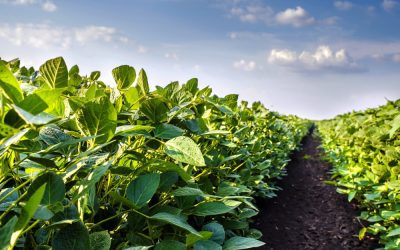Southeastern Indiana farmer, ICMC President grows his business with vision and a plan
By Dave Blower Jr.
Tim Gauck is the third generation to lead his family’s farm in Decatur County near Greensburg, Ind. Growing corn, soybeans and wheat, the Gauck family farm succeeds thanks to their family’s vision and plan.
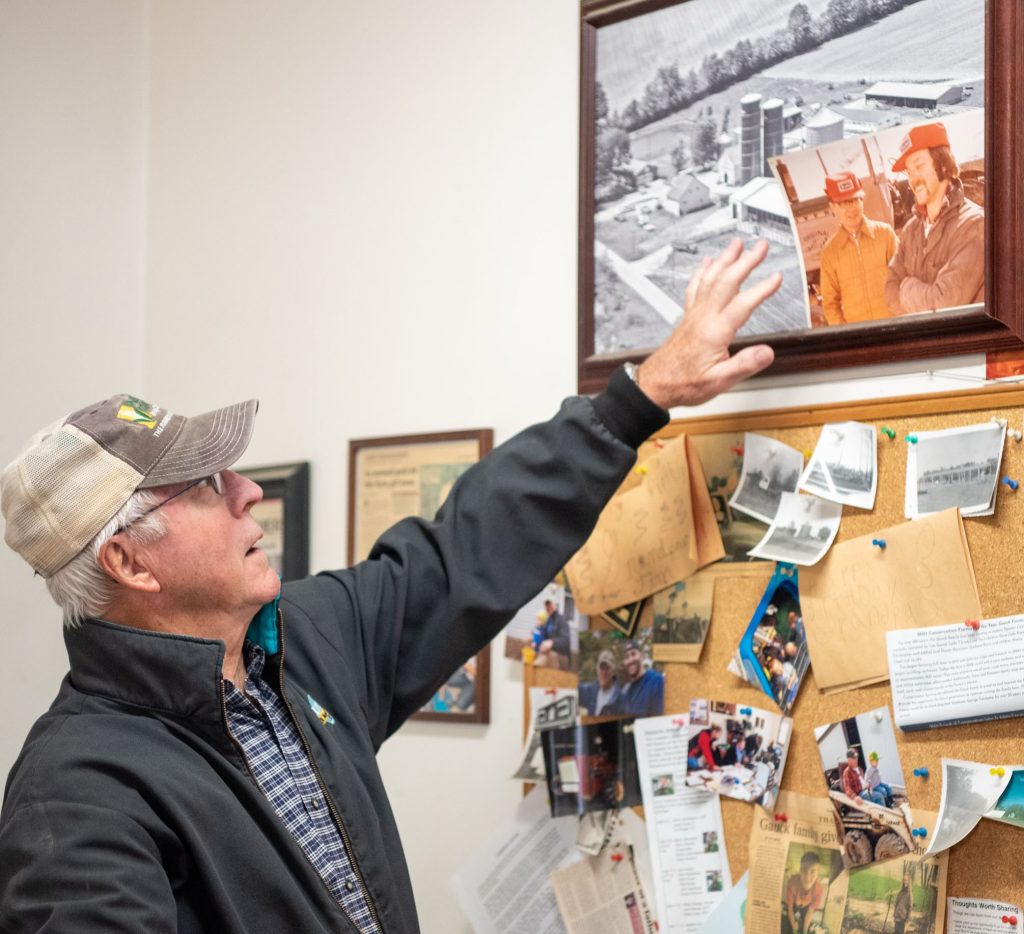
Gauck operates the farm with the help of his two children and seven grandchildren and says everyone in the family brings their strengths and interests to the farm business. His daughter and son-in-law, Diana and Kevin Horstman, work on the farm and raise their five children while also running a Beck’s Hybrids seed dealership, warehousing seed, and managing a farm trucking business. Diana also handles the farm’s bookkeeping.
His son and daughter-in-law, Steve and Kimmie Gauck, contribute to the farm in their own ways. Steve is an agronomist for Beck’s Hybrids, and Kimmie runs a freezer beef and pork business. They also raise laying hens, meat chickens and pigs and are parents of the fifth generation, son, Christopher, and daughter, Addie – both Purdue University students.
Integrating each family members’ unique talents into the farm business is a deliberate process rooted in Gauck’s years of service.
During the past 50 years, he has volunteered to serve on numerous boards and leadership roles within his community and industry, currently serving as president of the Indiana Corn Marketing Council (ICMC), the state’s corn checkoff program. His involvement in strategic planning and mission-building efforts inspired a guiding vision for Gauck Farms, Inc.
“Gauck Farms, Inc., will continue to be a respectable family business that focuses on sustainability, has the ability to adapt to changing markets, and is willing to diversify operations. The business will utilize the family members’ and employees’ talents so they can excel to the best of their abilities. We will work to provide opportunities that would allow future generations to be a part of the operation. Gauck Farms, Inc., will also strive to continue to be a valued and respected member of the local community.”
Encouraged by generations past and present, this vision reflects the values and goals that shape the family’s legacy
Coming home
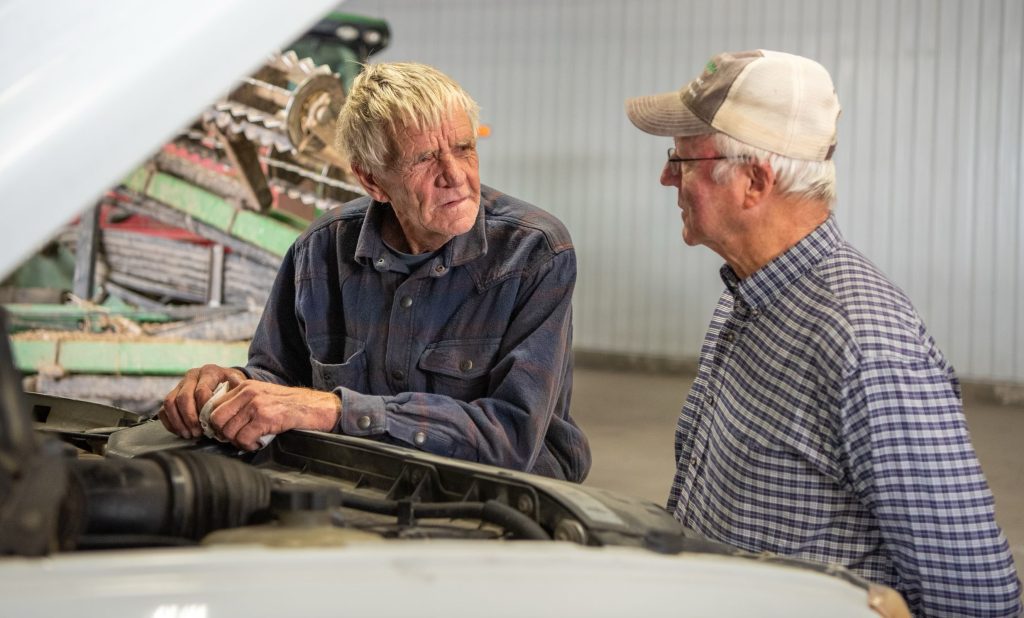
The adaptability of the farm can be defined by the changes it has been through. The farm was started by Gauck’s grandfather, Joe Raver, in 1918. Raver’s daughter and son-in law, Margaret and Quirin Gauck, grew the farm, which was known for innovations and new technology.
After graduating from Purdue University with a degree in agricultural economics and then working for Ralston Purina, Gauck returned to the farm in 1974. Each of his siblings also worked on this farm before moving on to other ventures. His brothers and sister are Gerald, Don, Ernie and Polly.
“Before going to Purdue, I got a tired of milking cows and tending stables, and said, ‘Man, I’m going off to college, so I don’t have to do this anymore,’” Gauck explained. “After college, I worked off the farm for about a year. Then I thought, ‘You know, the farm wasn’t as bad as I thought it was.’ My brother would say there’s a little manure in every job. So, I came back to farm again.”
Maintaining a balance between time for work, time for family and time for others is a priority.
“There’s one thing I’ve said for years,” Gauck added. “I don’t know if I like farming as much as what it allows me to do because I’ve been pretty involved in a lot of other things, and I enjoy that very much. But I do like farming. You set your own path; your priorities change from minute to minute sometimes. That’s pretty much my story.”
Family priorities
Gauck wanted his children and their spouses to chart their own paths, too.
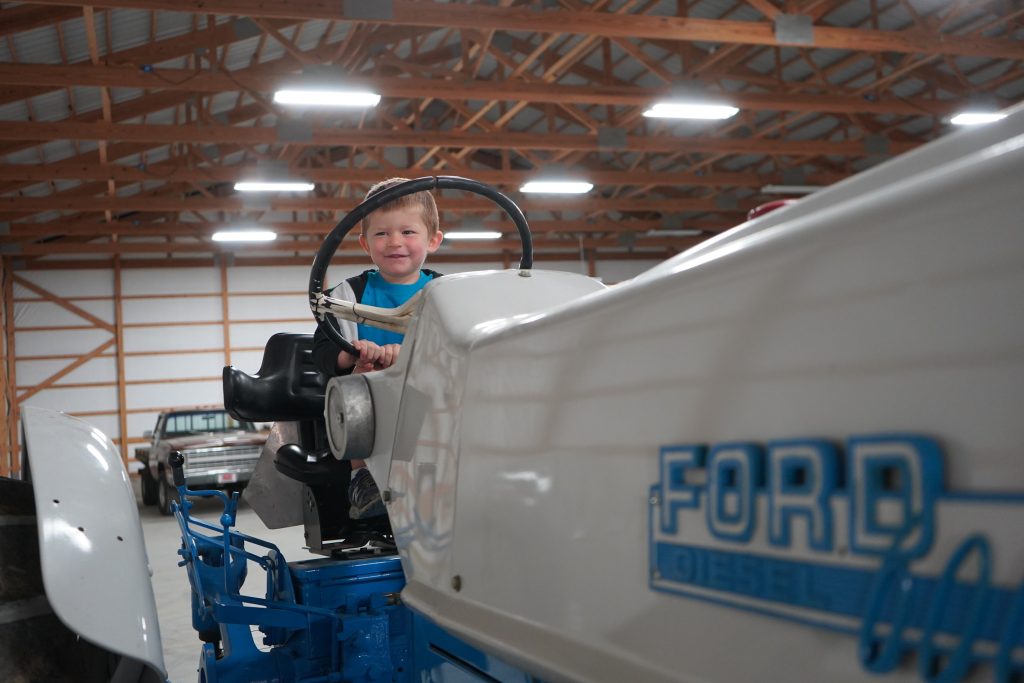
“When my son-in law, Kevin came on, he had a real interest in semis and repair work, so I thought ‘We can follow that route,’” Gauck said. “The trucks are his now. But when he wanted to farm, I told him, ‘Find a way to cover your wage.’ We did that by adding a bale-wrapping business for a couple of years, which turned out to be very successful. We expected to do 1,000 bales a year, but we did 4,000 in the first year. About that time, he and Diana started a family, and he was out late many nights baling. I said, ‘You know, that’s not part of our mission and vision statement – to be away from family.’ So, we got rid of the bale-wrapper. Soon after, they started the seed business with Beck’s, and between that and the semis, they were doing alright.”
Diana also said coming back to the farm was never part of her plan. In 2009, she called her father to see if there was a place for her on the farm. “After I worked here for a while, he transitioned the books over to me,” Diana said. “For somebody who has hated math all my life, I ended up really enjoying accounting. I still don’t like math, but now I wish I would have taken some accounting classes in school. I enjoyed taking over the books, and Kevin enjoys the farming part of it. It’s like I said, God had a better plan for us.”
Kevin and Diana are parent to five young children: Wesley, Kelly, Gabe, Chad and Jacob.
Gauck’s son, Steve, was also encouraged to work off the farm after graduating from Purdue with an ag econ degree.
“I enjoyed the people, enjoyed learning and enjoyed being in business,” Steve said. “Doing that led to opportunities to work off the farm a little bit and make sure it was what I wanted. I worked in ag retail and in ag sales, and then I started at Beck’s. Beck’s gave me the option to come back here, help Dad farm and still work for them. It’s been a nice partnership. I probably don’t get to be here as much as I’d like to, but since I have a full-time job that I enjoy and relates to the farm, it helps me bring ideas back to the farm and have discussions with the family.”
Steve’s wife, Kimmie, operates Gauck’s Meats, which sells fresh pork, grass-fed and finished beef, and pasture-raised chickens. She was raised on a small livestock farm and admits that row-crop farming was new to her. Kimmie exclusively works on the livestock side of the farm.
Gauck had a third child, Paul, who was five years younger than Steve. At one point, Gauck thought Paul would be the future of the farm, but he suffered from cancer and passed away in 2001 at the age of 19.
Preserving the land
Gauck said preserving the land for future generations is also part of the plan. They use grid-sampling to apply fertilizer using precision technology to maximize yield potential and limit the use of extra fertilizer. The Gaucks also use no-till practices to conserve land where erosion is a concern.
“We are moving to a complete no-till and cover crop system to allow us to build soil health and maintain the soils for the next generation,” Gauck said. “We use precision farming methods to collect data from every acre of our farming operation. This includes automated planting maps and precise yield maps.”
For these efforts and more, Gauck was honored with a Master Farmer designation from Indiana Prairie Farmer magazine in July.
He said finding a proper balance between economics and sustainability is important.
“The economics must work because you must make money off the land you use,” Gauck said. “But sometimes you need to take a longer view and consider what’s best for the land for the next generation to be able to use it.”
Steve added, “Sustainability is used as a generic conservation term, but every farmer wants the farm to be sustainable for the next generation”
Agricultural industry leadership
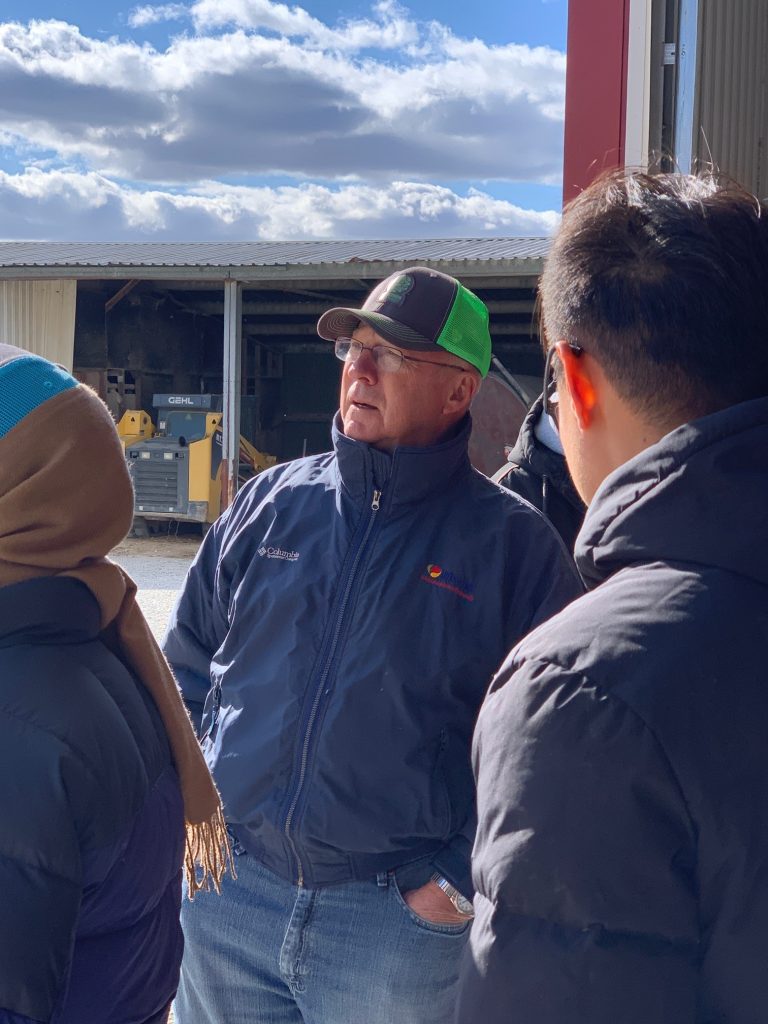
Leading Indiana’s corn checkoff program isn’t Gauck’s first leadership position. He has served on various boards in a variety of roles since the mid-1970s. In the past, he has been the president of the Decatur County Beef Cattlemen’s Association, a board member of the Indiana State Beef Cattlemen’s Association, a director of the Decatur County REMC and a 35-year volunteer 4-H leader.
As the ICMC president, Gauck is focused on increasing the value of the crops that Hoosier farmers produce more valuable.
“Every industry plays a role in shaping its own future,” Gauck said. “Schoolteachers have a teacher’s union. Small businesses have their organizations. The rural electric co-ops have an association. You’ve got to have a voice in what’s going on in your industry.”
Gauck is also a paid member of the Indiana Corn Growers Association (ICGA). He believes it’s important that the checkoff work done by ICMC is supported by the policy efforts provided by ICGA.
“Thinking about our checkoff work, I think there’s real value in finding new markets for our corn both domestically and overseas. One easy solution is to increase ethanol (blended into gasoline) from 10 percent to 15 percent. That would help right away. Then we need ICGA to work with lawmakers in Washington, D.C., and in other states to make this a priority.”
Posted: November 16, 2024
Category: ICMC, Indiana Corn and Soybean Post - November 2024, News

